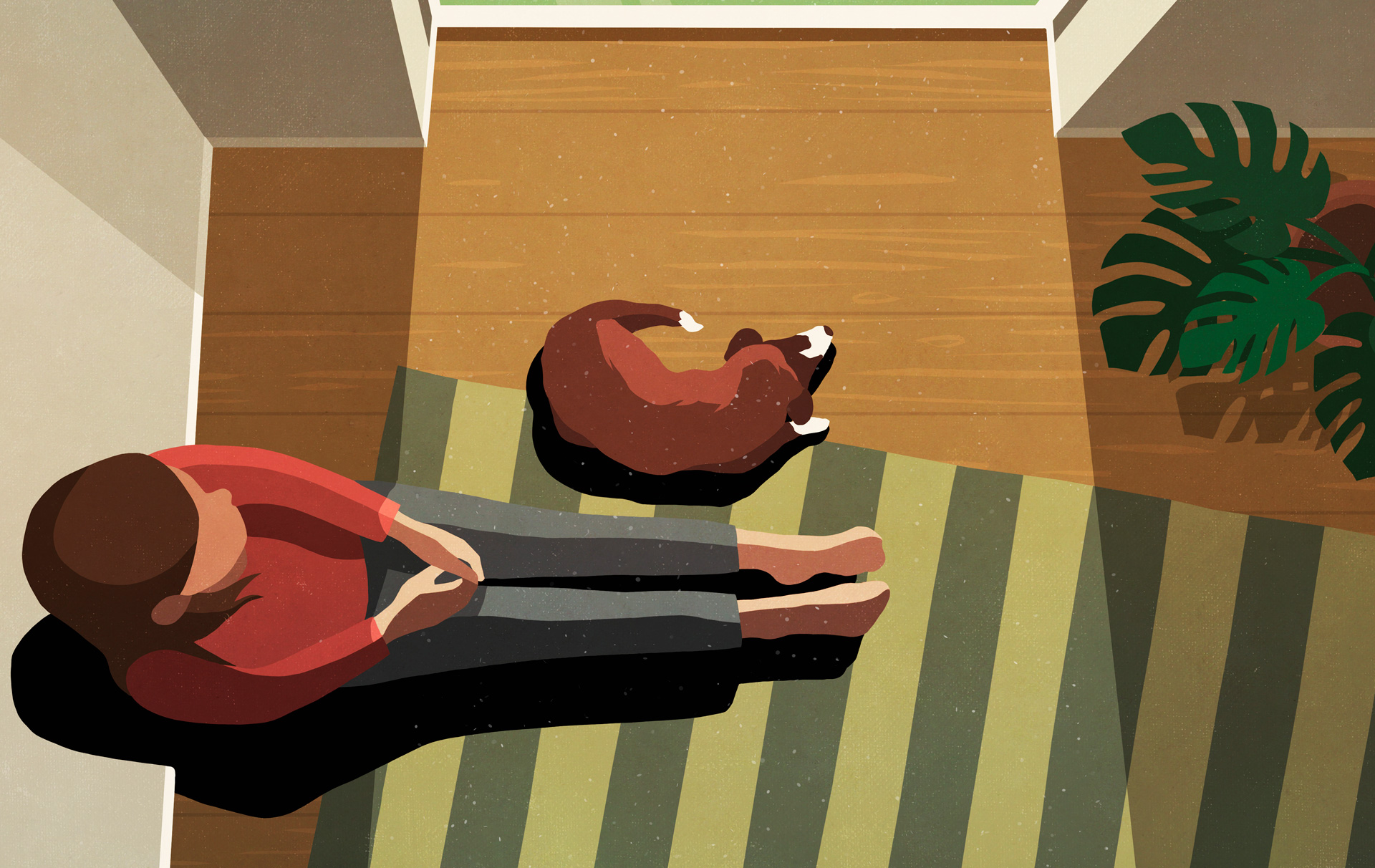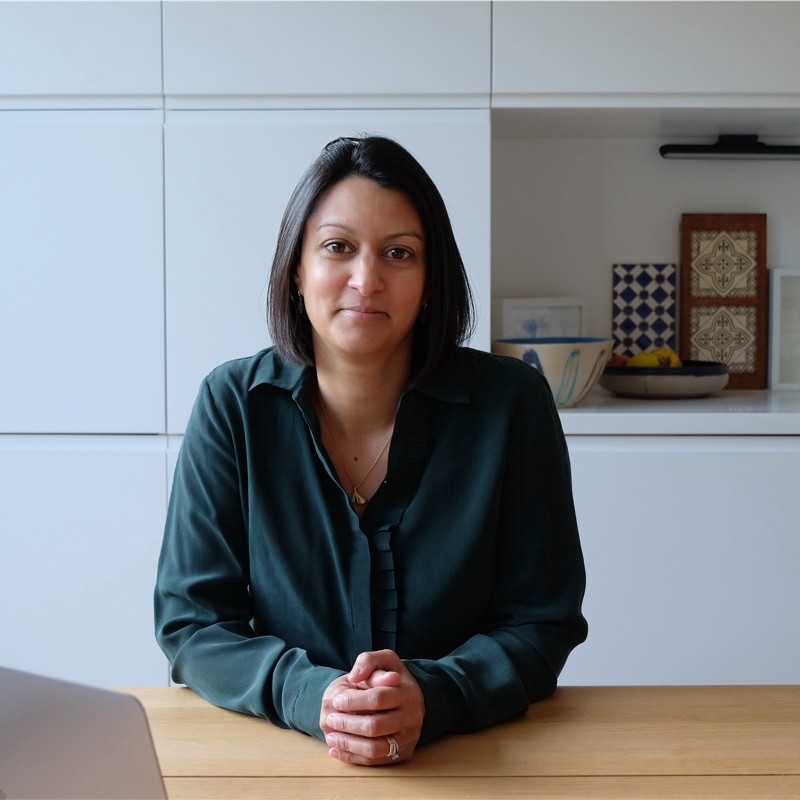A GP and Advanced Menopause Specialist on how to identify and manage symptoms of menopause
An Advanced Menopause Specialist explains the common symptoms of menopause, how they are treated, and shares advice for how to manage them


The symptoms of menopause are varied and can affect women both physically and emotionally. While symptoms may differ depending on the person, and everyone will experience the menopause slightly differently, knowing the common symptoms can be helpful so you can get the right support and treatment.
In the UK, one-third of the female population are perimenopausal or menopausal, and an estimated 1.5 million women – around 80% of those going through menopause – experience common menopause symptoms. The severity of these symptoms will vary from person to person, and while some people may find the menopause symptoms they experience to be mild, for others the changes will be severe. For example, a study from 2023 found that approximately 27% of women reported at least moderate problems coping with the menopause and found symptoms impacted their work.
Dr Claire Phipps, a GP and Advanced Menopause Specialist at London Gynaecology, answered our questions about menopause and provided her expert advice on identifying and managing symptoms. Laura Southern, a nutritional therapist, also provided advice on supplements and vitamins to take for menopause in the FAQ section, and Dr Tomasz Lukaszewski, a senior consultant in reproductive medicine at London Gynaecology and IVI London, answers questions on the menopause and fertility in the FAQ section too.
If you're concerned about the menopause, or think you may be experiencing early menopause, the best thing to do is see your GP and get
personalised advice from a doctor. You could also arrange to see a menopause specialist and there are specialist menopause centres in the UK that can offer treatment. You can find your nearest NHS or private menopause specialist on the British Menopause Society website here.
What age does menopause start?
The NHS defines menopause as, "when your periods stop due to lower hormone levels. It usually affects women between the ages of 45 and 55, but it can happen earlier."
Dr Claire Phipps explains, "The average age of menopause is 51 years, with the menopause meaning the day in which you can retrospectively determine that you have been without a period for 12 consecutive months. After this day, you are post-menopausal. Most women will have their last period between 47 and 53 years of age. This can be different for you depending on your ethnicity and genetics. Perimenopause is the transition to your last period and beyond and can start in your early 40’s but no two women are the same."
What causes the menopause?
Menopause is a natural phase in a woman’s life and every woman will go through menopause at some point as her reproductive phase ends.
Parenting advice, hot topics, best buys and family finance tips delivered straight to your inbox.
Dr Claire Phipps explains, "The menopause refers to one day in time when your periods have stopped for 12 consecutive months. Before this you are perimenopausal and after post-menopausal. The menopause is caused by the natural decline in production of the hormones oestrogen and progesterone from the ovaries. This marks the end of a woman’s reproductive stage. The ovaries (and the eggs within) produce oestrogen which is one of the hormones which drives the natural reproductive cycle in women. As the number of eggs declines with age, so too does the production of oestrgeon, before the ovaries stop producing it and women reach the menopause.”
Menopause can also be triggered or induced by other factors such as illness, injury, or medical treatment, although this is less common.
How is menopause diagnosed?
The diagnosis of menopause will depend on your age, but if you think you have perimenopause or menopause symptoms you should speak to your GP.
"Women over the age of 45, who have any symptoms of the perimenopause, do not need any blood tests to diagnose the menopause," Dr Phipps says. She explains: "This is because at this age and beyond it is highly likely that the natural decline in oestrogen has started to occur. Prior to this age, and certainly in younger women, doctors may carry out some hormone blood tests and other blood profiles to rule in or out the menopause. This is because in some women, menopause can occur earlier, and for these women it is important to clarify the cause, in order to provide the most appropriate treatment."
What are common symptoms of menopause?
Both menopause and perimenopause (when you have symptoms of menopause but your periods have not stopped) can cause symptoms such as anxiety, mood swings, brain fog and hot flushes. These symptoms can last for varied amounts of time - from months to years - and can also change over the course of time. Perimenopause symptoms can start years before your periods stop. The primary symptom of menopause is that you have not had a period for 12 months.
Dr Phipps explains, "Perimenopause is the transitional period leading up to menopause, during which a woman's body undergoes hormonal changes that eventually result in the cessation of periods. This phase can last for several years and is characterised by a variety of symptoms, both physical and emotional. Around 80% of women will experience some degree of symptoms, and whilst some will not be severe, 25% of women will have significant symptoms."
There are many different menopause symptoms and no two women will experience the symptoms in the same way. Dr Phipps shared the following common symptoms to watch out for:
- Irregular periods: Menstrual cycles may become irregular in length and flow due to fluctuations in hormone levels, particularly oestrogen and progesterone.
- Hot flushes and night sweats: These sudden feelings of warmth, often accompanied by flushing of the face and upper body, can disrupt sleep and cause discomfort.
- Sleep disturbances: Changes in hormone levels can lead to insomnia, difficulty staying asleep, or waking up frequently during the night.
- Vaginal dryness: Decreased oestrogen levels can result in vaginal dryness, itching, and discomfort during intercourse, along with recurrent urine infection, burning and bleeding after intercourse.
- Mental health / psychological symptoms: Hormonal fluctuations can affect neurotransmitters in the brain, leading to mood swings, irritability, anxiety, or depression.
- Changes in libido: Some women may experience a decrease in sexual desire or changes in sexual function during perimenopause.
- Fatigue: Hormonal changes, disrupted sleep, and other symptoms can contribute to feelings of tiredness and fatigue.
- Weight gain: Changes in hormone levels and metabolism can make it easier to gain weight, especially around the abdomen.
- Memory problems and difficulty concentrating: Some women may experience cognitive changes such as forgetfulness, difficulty concentrating, or "brain fog" during perimenopause.
- Muscle and joint pains
- Dry eyes and dry skin
"These symptoms occur because of the gradual decline in ovarian function and hormone production that characterises the perimenopause," says Dr Phipps. "Oestrogen is a master regulator of many processes in a woman’s body, and as the levels decline or fluctuate as they do (unpredictably), various physiological processes are affected, leading to physical, psychological and genitourinary symptoms."
There are things you can do to help with these symptoms, including taking medicines that can replace the missing hormones. The NHS advises seeing a GP or nurse if you think you have perimenopause or menopause symptoms.
Treating symptoms of menopause
Menopause can feel different for everyone and while some people may experience a number of symptoms, others may only experience them mildly or not at all. Whatever your symptoms of menopause, you don't need to go through any discomfort, unhappiness or pain alone. If any of your menopause symptoms are causing you worry or discomfort, seek help from a doctor. If you're having any symptoms that are impacting your life, you should talk to your doctor or a menopause specialist. They can advise you on treatment options. You may also want to consult a menopause nutritionist who can help you with more natural solutions. Talking therapies, like counselling or CBT (cognitive behavioural therapy), can help with symptoms of menopause and perimenopause and you can get NHS talking therapies without seeing a GP first.
The NHS recommends, "getting advice early" from a doctor on your symptoms because this, "can help reduce the impact perimenopause and menopause have on your health, relationships and work."
"An individualised approach is necessary in managing symptoms of menopause, with a variety of treatment choices available," says Dr Phipps. "Treatment options would usually depend on the symptoms. Options include hormonal pharmaceutical treatment such as Hormone replacement therapy (HRT), which is the mainstay of management and helps to provide long term health protection. Hormone replacement therapy is the gold standard treatment for managing most symptoms of the menopause."
What is Hormone Replacement Therapy (HRT) and when does someone need it?
The NHS describes HRT as, "a safe and effective treatment for most going through menopause and perimenopause. Your GP will discuss any risks with you."
"To support the body through menopause, many women choose hormone replacement therapy (HRT) which replaces the hormones that the ovaries were producing so that the symptoms and effects of menopause are minimised," Dr Phipps explains.
"In addition to reversing symptoms of menopause and improving quality of life, HRT also helps with the prevention of osteoporosis (thinning of bones) and cardiovascular events such as heart attacks."
"The two main hormones in HRT are oestrogen and progestogen. HRT involves either taking both of these hormones (combined HRT) or, in the case of women who have had a hysterectomy, just taking oestrogen (oestrogen-only HRT)."
HRT can come in the form of skin patches, a gel or spray to put on the skin, implants or tablets.
The NHS explains, "If you're having treatment for your symptoms of menopause or perimenopause, you'll need to return to the doctor or nurse who is prescribing your HRT for a follow-up review after 3 months…You may need treatment for a few years, until most of your menopause and perimenopause symptoms have passed."
HRT should always be started after a careful assessment of the risks and benefits. Speak to your GP about the risks associated with HRT and seek personalised advice from a doctor regarding the best treatment for you based on your symptoms.
Alternatives to HRT
Following the standard guidance for a healthy lifestyle such as eating well, exercising and looking after your mental health can also help you manage the symptoms of perimenopause and menopause.
Dr Phipps says, "For women who choose not to use HRT or cannot use HRT, there are other treatments available which can help with individual symptoms of the menopause. These include antidepressant medications, herbal remedies, acupuncture and cognitive behavioural therapy for example. As ever, an individualised and holistic approach is key." You should always talk to a doctor before taking herbal supplements or complementary medicines and seek personalised advice from a doctor regarding alternative treatments for menopause symptoms.
"Lifestyle changes can also help many of the symptoms of the perimenopause and if you would like to avoid taking conventional HRT, some lifestyle changes will help," says Dr Phipps.
Lifestyle changes and alternatives to HRT that may help with menopause and perimenopause symptoms include:
- Eating a balanced, varied and healthy diet: This can help keep the body weight down and not put so much pressure on the joints. Focus also on improving your gut health which can often suffer in the menopause – eating fermented foods (if you can tolerate them) helps with this. A balanced diet with an appropriate amount of protein, calcium and foods containing phytoestrogens (plant sources of oestrogen) can help. Common foods containing phytoestrogens are soya, nuts, lentils, chickpeas and oily seeds.
- Regular exercise: Exercise such as resistance training and aerobics can help with joint stiffness and promote healthy bones and muscles. An increase of blood flow to the brain can help with brain function. Movement can also increase the levels of our ‘happy’ hormones – dopamine and serotonin and make us feel better. The NHS recommends including weight-bearing activities where your feet and legs support your weight like walking, running or dancing.
- Manage stress: Reduce stress levels with relaxation and mindfulness. Yoga, massages and breathing exercises help with tension in the neck, back and shoulders as well as reducing anxiety and irritability.
- Stop smoking: Stop smoking and reduce alcohol consumption.
- Vitamin D: Vitamin D is important for the bones and checking and maintaining optimum levels reduces the risk of osteoporosis. You can either get some sunlight on your skin as this triggers the production of vitamin D or take vitamin D supplements.
- Rest: Get plenty of rest, including keeping to regular sleep routines.
- Try CBT: Cognitive behavioural therapy (CBT) is a type of talking therapy that can help with a low mood and feelings of anxiety. It can also help with sleep problems.
- Get support: As well as speaking to your doctor, talk to other people going through the same thing, like family, friends or colleagues.
Speak to your GP or a menopause specialist if you think you are experiencing symptoms of menopause. If you're finding going through menopause difficult and it's affecting your mental health, help and support is available here and you can access the NHS talking therapies service here.
There are also many excellent support groups and charities to help women facing menopause, including:
- Women’s Health Concern (WHC) - a trusted source of information on menopause for women and their partners
- Menopause Matters - an award winning, independent website providing up-to-date, accurate information about the menopause - including early menopause
- Earlymenopause.com - an online community providing a wealth of information
- The Daisy Network - a nationwide charity that offers support and guidance for women with premature ovarian insufficiency (POI)
- Menopause cafe - organises events where you can talk about the menopause and share experiences with likeminded women over a cup of tea
- Queer Menopause - finds and promotes inclusive menopause resources for people who are LGBTQIA+
Answers to frequently asked questions about menopause
Can periods restart after menopause?
Dr Phipps answers: "Once you have reached the menopause (i.e. 12 consecutive months without a period), you should not have any further periods. If any bleeding does occur, it is advised that you speak to your doctor and report this."
What are the best supplements to take for menopause?
Nutritional Therapist Laura Southern says, "With supplements there is no 'one best' as each woman is individual and it also depends whether they're taking HRT or not. There are certain areas that many women might want to focus on - this includes bone support - so vitamin D, calcium and magnesium can be supportive. Stress support for many women can also be useful - a good B complex, magnesium perhaps and some ashwagandha too."
What are the best vitamins for menopause?
Nutritional Therapist Laura Southern says "it’s very individual" when it comes to what vitamins are best to take for the menopause, so you should seek personalised advice on the matter, but she adds, "definitely vitamin D if levels are low. Get a blood test from the GP and check levels of B12, iron, vitamin D as these should all be supported if low."
Can magnesium help with menopause symptoms?
Yes, magnesium can be really supportive when suffering with menopause symptoms. Nutritional Therapist Laura Southern explains, "It can help reduce muscle cramps and restless legs, it can also support sleep and help reduce anxiety. I often recommend a magnesium supplement to my clients. Choose magnesium glycinate or threonate for sleep and anxiety symptoms. Magnesium citrate is best used to support digestion and magnesium oxide can often promote loose stools so can be supportive for constipation."
Can you still get pregnant and have a baby if you have begun menopause?
As perimenopause progresses, your body will produce less hormones, including oestrogen. Because this can affect our periods, there's an erroneous belief that this renders women infertile, but it's still technically possible to get pregnant until you reach menopause. Dr Phipps confirms, "Women who are perimenopausal are still very much fertile so will need to consider contraception in this phase."
However, once you have reached menopause and have not had a period in 12 months, it is unlikely you will be able to conceive naturally - although you may still be able to conceive using assisted reproductive technologies such as IVF with egg donation.
Can you have fertility treatment after menopause?
Dr Tomasz Lukaszewski, a senior consultant in reproductive medicine, answers: "Fertility treatment after menopause is generally not possible using a woman's own eggs, as menopause marks the end of a woman's ovarian reserve. However, in some cases, women who have undergone menopause may still be able to conceive using assisted reproductive technologies such as IVF with egg donation."
"Egg donation involves using eggs from a younger woman and fertilizing them with either partner’s or donor’s sperm. The resulting embryos are then transferred to the uterus of the woman who is wishing to conceive. This method allows postmenopausal women to carry a pregnancy to term and experience childbirth."
"Before IVF treatment with egg donation can be offered postmenopausal women will require a thorough medical assessment to ensure that there are no general health contraindications to pregnancy."
The information on GoodTo.com does not constitute medical or other health advice or diagnosis and should not be used as such. Although GoodtoKnow consults a range of medical experts to create and fact-check content, this information is for general purposes only and does not take the place of medical advice. Always seek the guidance of a qualified health professional or seek urgent medical attention if needed.
Our experts

Dr Claire Phipps is a women’s health GP at London Gynaecology. A highly dedicated and compassionate GP, Dr Phipps graduated from Guy’s, Kings and St Thomas’s medical school and has many years of experience in providing comprehensive healthcare to all ages. Outside of the clinical work, Claire delivers menopause workshops, podcasts and advocates for community health initiatives to enable all women to receive the care they deserve.

Laura is fully certified nutritional therapist, who has worked in nutritional therapy for 14 years, she qualified at the prestigious Institute for Optimum Nutrition, which is recognised as one of the leading centres for nutritional training and education.
Laura works with London Gynaecology to support patients and their treatment plans with targeted nutritional intervention.

Mr Tomasz Lukaszewski is a senior consultant in reproductive medicine at London Gynaecology and IVI London. With over 15 years of experience in obstetrics and gynaecology, he has worked in both private and NHS settings. His extensive professional background includes international experience in the UK at the Royal London Hospital and later at the University College London Hospital. Additionally, he has worked in Poland at the Obstetrics and Gynaecology University Hospital.

An internationally published digital journalist and editor, Rachael has worked for both news and lifestyle websites in the UK and abroad. Rachael's published work covers a broad spectrum of topics and she has written about everything from the future of sustainable travel, to the impact of the coronavirus pandemic on the world we live in, to the psychology of colour.